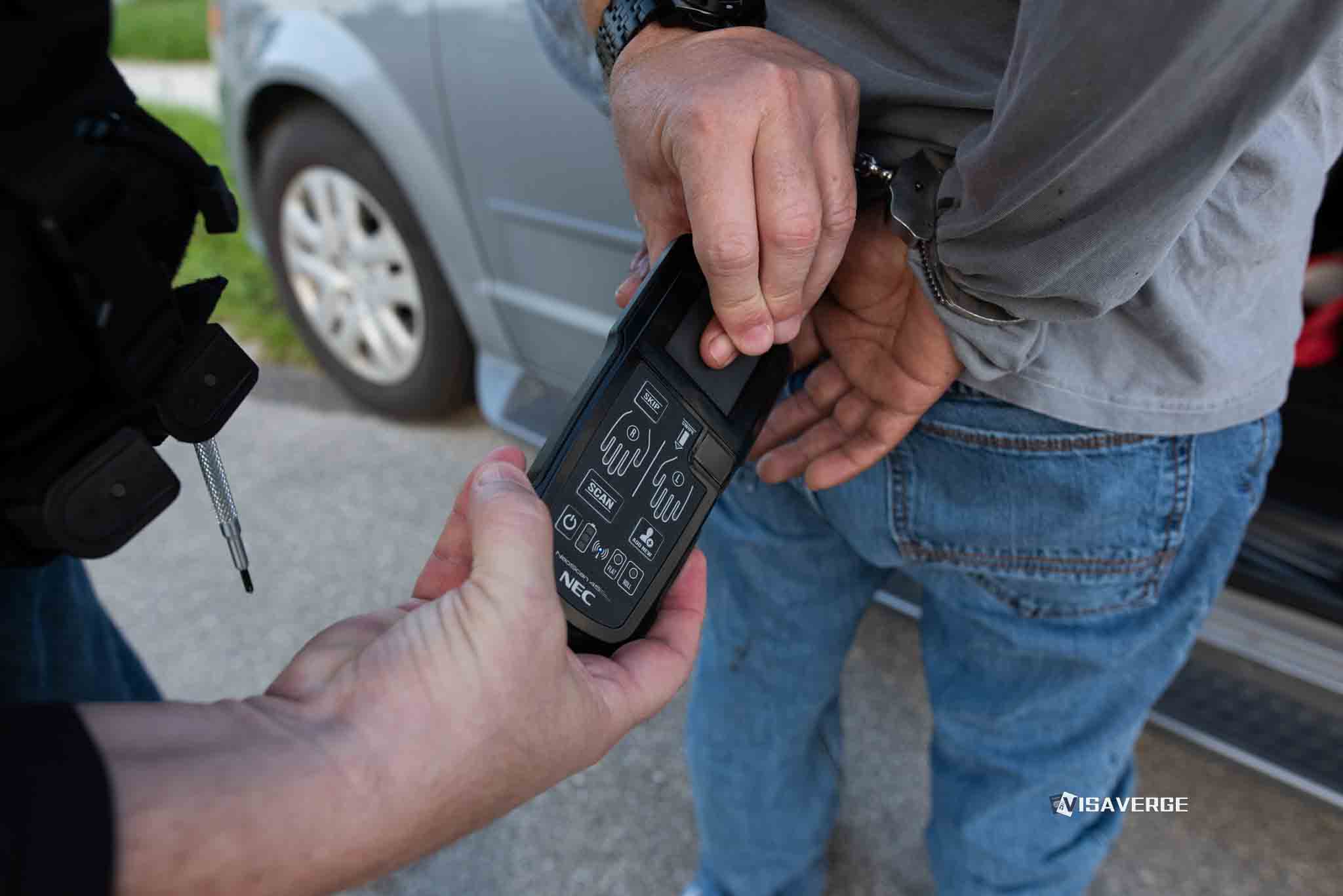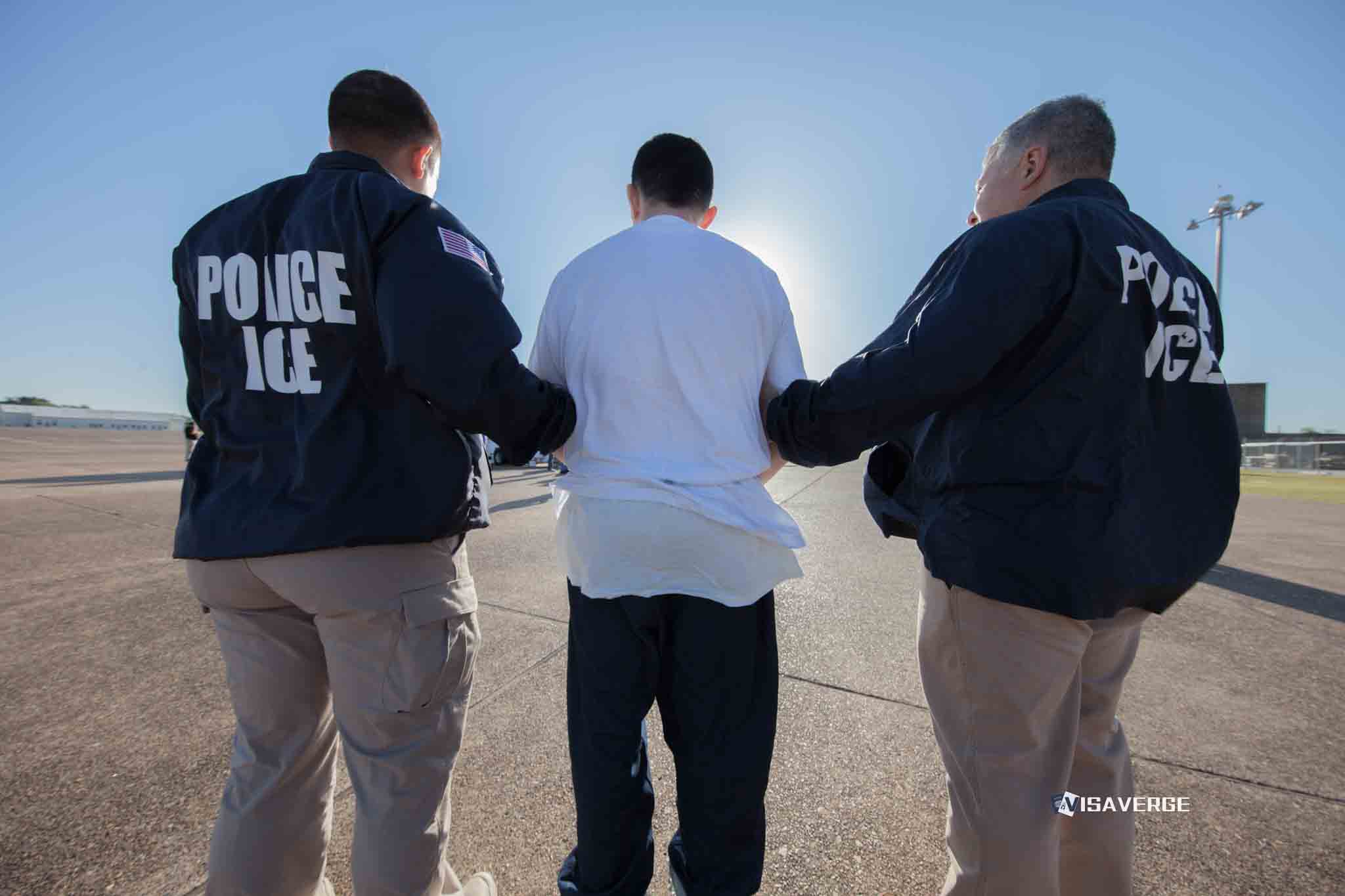(MANHATTAN) A federal judge ordered U.S. Immigration and Customs Enforcement to fix unsafe and unsanitary detention conditions at the 10th-floor holding area inside 26 Federal Plaza after immigrant rights groups described people packed into overcrowded cells without basic care. The temporary restraining order, issued August 13, 2025, requires ICE to act at once to protect detainees in Manhattan, where migrants are often held after immigration court hearings or routine check-ins.
U.S. District Judge Lewis A. Kaplan directed ICE to cut the number of people held at the site, clean and maintain the space properly, hand out sleeping mats, and give each person free, unmonitored, confidential access to a lawyer within 24 hours of being taken into custody. The order follows a lawsuit by Make the Road New York, the American Civil Liberties Union, and the New York Civil Liberties Union, which alleged harsh conditions at 26 Federal Plaza in Lower Manhattan.

Allegations and Conditions Reported by Advocates
Court filings and declarations from advocates describe severe conditions inside the holding area:
- Migrants held in overcrowded cells with open toilets and a constant smell of sweat, urine, and feces.
- A near-total lack of hygiene items: no soap, toothbrushes, or sleeping mats.
- Reports that only two menstrual products were available for a room of women.
- Many people sleeping on concrete floors.
- Food characterized as inedible “slop,” with only two meals per day.
- Detainees saying they went days or weeks without showers, missed needed medicines, or lacked clean clothes.
These claims were central to the lawsuit and prompted the judge’s immediate order for relief.
Court Order: Immediate Requirements
Judge Kaplan’s temporary restraining order directs ICE to take the following steps immediately:
- Reduce overcrowding by lowering the number of detainees held at the same time.
- Improve cleanliness and sanitation in holding rooms.
- Provide sleeping mats to every detainee.
- Guarantee free, unmonitored, confidential access to legal counsel within 24 hours of custody.
The 24-hour legal-access requirement is a clear deadline intended to protect detainees’ ability to prepare their cases and seek relief.
The Department of Justice acknowledged some shortfalls during proceedings. DOJ attorney Jeffrey Oestericher noted detainees lacked medication and sleeping mats and received limited meals, though he disputed that crowding was severe. Regardless, the judge’s order now binds the government to correct the problems quickly.
Legal and Advocacy Perspectives
Advocacy groups view the ruling as a necessary check on ICE practices in New York City.
- The ACLU, Make the Road New York, and the NYCLU argued the conditions violate detainees’ constitutional rights, including the right to due process and meaningful access to counsel.
- ACLU senior staff attorney Eunice Cho emphasized that the court’s action supports those rights and said the groups will continue pressing for lasting changes.
The order underscores the importance of timely, confidential legal access. Without it, migrants can struggle to make bond requests, apply for relief, or disclose facts essential to their claims.
Background on 26 Federal Plaza and Ongoing Concerns
The Manhattan site at 26 Federal Plaza is a long-standing ICE holding location connected to immigration court and enforcement operations in New York. Advocates say poor conditions have persisted for years, with people sometimes staying longer than expected in short-term rooms that lack beds, showers, or proper medical screening.
- Recurrent complaints include overcrowded cells, open toilets, and limited food.
- The lawsuit’s detailed accounts echo grievances raised repeatedly by advocates and former detainees.
For detainees and families, the immediate question is whether these court-ordered fixes will appear on the ground: mats for sleep, basic hygiene items, and prompt private access to lawyers. Families and attorneys will likely monitor closely to see if ICE reduces head counts, improves sanitation, and ensures dependable phone or in-person legal contact within the court’s 24-hour requirement.
What Comes Next for Detainees and ICE
A temporary restraining order signals urgency but is time-limited. Possible next steps include:
- Follow-up hearings to consider more evidence.
- A determination whether to extend the order, issue a preliminary injunction, or approve a settlement.
- Further court action or stronger remedies if ICE fails to comply.
According to analysis by VisaVerge.com, the ruling could encourage similar cases where detention sites face credible reports of unsafe or degrading conditions.
Likely operational impacts and expectations:
- Capacity management: moving detainees to other facilities or changing intake practices to prevent backups on the 10th floor.
- Cleanliness standards: regular cleaning schedules, reliable access to toilets and sinks, and adequate supplies of soap, menstrual products, and toothbrushes.
- Food and medical care: ensuring edible meals at appropriate times and timely access to needed medications and medical screening.
The government’s disagreement over crowding may persist; ICE may point to day-to-day variation or external causes such as court schedules. Still, the judge’s order sets a clear standard: no more overcrowded cells. Advocates will likely document room counts, phone access, meal delivery, sanitation, and medical handling to monitor compliance.
Implications for Attorneys and Legal Access
The 24-hour legal access rule marks a significant operational change:
- Legal teams may set up on-site schedules and phone rotations to meet clients quickly.
- Attorneys will expect private spaces or unmonitored lines, not group calls in common areas.
- If private access is not provided, lawyers can raise the issue with the court.
ICE’s publicly posted detention standards remain relevant and can be reviewed here: https://www.ice.gov/detention-standards. While short-term holding rooms differ from long-term centers, the core duties—safety, sanitation, food, medical screening, and access to counsel—still apply.
Wider Context and Next Steps for Stakeholders
The ruling arrives amid broader debate about detention in New York City and nationwide. Some leaders and service groups favor community-based programs and fewer short-term holds; others emphasize enforcement.
- The judge’s order does not resolve that debate, but it does require ICE to treat detainees with basic dignity and provide the tools needed to contact a lawyer.
- Migrants with court dates at 26 Federal Plaza should not be held in dirty, overcrowded cells, denied basic hygiene, or cut off from legal help.
- If problems persist, advocates advise detainees to inform their attorney, who can alert the court or seek relief tied to this order.
Compliance and Accountability
The coming weeks will indicate whether ICE’s response matches the judge’s demands. Compliance will be measured by concrete changes:
- Fewer people per room
- Clear access to counsel within 24 hours
- Clean facilities with sleeping mats
- Regular meals and timely medications
At 26 Federal Plaza, these basics are now not just expected—they are court-ordered.
Frequently Asked Questions
This Article in a Nutshell
A federal judge ordered ICE to fix dangerous conditions at 26 Federal Plaza’s 10th-floor holding area. The August 13, 2025 temporary restraining order demands reduced overcrowding, sleeping mats, sanitation, and confidential legal access within 24 hours. Advocacy groups will monitor compliance as detainees seek basic hygiene, medical care, and counsel.













